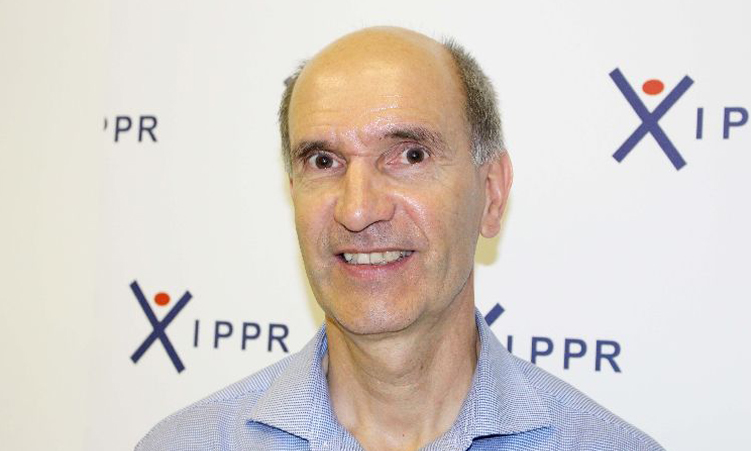The Institute for Public Policy Research (IPPR) has praised a proposed law that would enable the state to examine whether people’s lifestyles match their earnings or salaries.
Justice minister Yvonne Dauseb last week tabled a bill to amend the Prevention of Organised Crime Act (Poca), which would see the state enforce laws that facilitate lifestyle audits, including the recognition of “unexplained wealth orders”.
The proposed changes partly fulfil president Hage Geingob’s push to sharpen the country’s approach in investigating people’s unexplained wealth.
The Poca amendment bill includes a clause that says the prosecutor general may apply to the High Court for an unexplained wealth order declaring property concerned to be an unexplained asset.
The court may, subject to such conditions as it considers necessary, issue an unexplained wealth order in respect of such property.
“The unexplained wealth order must require the person who is the owner, holder, custodian or bona fide possessor of the unexplained asset to provide an affidavit under oath that sets out the nature and extent of his or her interest in the property […], an explanation on how he or she obtains the wealth, including how any cost incurred in obtaining the property were met, and if the property is held on behalf of a third party,” the clause says.

The IPPR says the proposed amendments to the law that will enable the state to conduct lifestyle audits on individuals demonstrates Namibia’s commitment to combating corruption and restoring public trust in government institutions.
The amendments to the act have been met with concerns by some members of the public, claiming it would breach their right to privacy.
IPPR researcher Rosevitha Ndumbu says while privacy concerns are valid, legislation can be designed to strike a balance between individual privacy rights and the public interest.
She says proper legal safeguards could ensure that lifestyle audits are conducted fairly, respecting due process and protecting sensitive personal information.
“Overall, enacting laws to enforce lifestyle audits, including unexplained wealth orders, strengthens Namibia’s anti-corruption framework, promotes transparency, and helps restore public trust,” she says.
Ndumbu says it is important to carefully balance the benefits and drawbacks of lifestyle audits, taking into account privacy concerns, fairness, proportionality, and adherence to legal safeguards.
“Implementing comprehensive legislation, clear guidelines and effective oversight mechanisms could help mitigate disadvantages associated with unexplained wealth orders and ensure a fair and transparent audit process,” she says
Ndumbu says it would also contribute to a fairer and more transparent society.
The researcher says “lifestyle audits, supported by unexplained wealth orders, help identify individuals who may have acquired wealth through criminal means, such as bribery, embezzlement, or fraud and holds them accountable to explain the source of their wealth”.
Ndumbu says these measures would promote transparency and accountability among public officials and individuals in positions of power.
President Hage Geingob in 2016 said all government officials would be subjected to audits to assess whether their salaries match their lifestyles.
Yet cases such as the Fishrot fishing quotas corruption scandal continue to expose how the state has failed to detect the unexplained wealth of accused individuals.
Speaking to Voice of America in 2016, Geingob said lifestyle audits was one of his strategies to curb corruption.
“We will also have lifestyle audits. This is going to be done. If your salary is this, how do you live this kind of lifestyle?” he said.
Bank of Namibia governor Johannes !Gawaxab has in the past promised lifestyle audits to force individuals brought before a court of law to prove their wealth has been acquired through legal means.

Economic analyst Klaus Schade told New Era in 2021 that countries such as the United Kingdom introduced unexplained wealth orders in 2018, covering mainly two categories of people – politically exposed individuals, and those suspected to be involved in crimes.
“Unexplained wealth orders place the burden of proof on the accused person, rather than on the state by requiring them to prove how they have paid for their assets. It has to be granted by a court,” he said.
Schade added: “Introducing unexplained wealth orders in Namibia could add another powerful tool to the fight against corruption and money laundering. Like with other existing tools, such as lifestyle audits, it requires strong institutions that investigate suspected cases of corruption, money laundering, etc., thoroughly and apply the available tools without hesitation.”
PIRACY
This law would also see those who may be convicted of piracy liable to a fine not exceeding N$100 million, or to imprisonment for a period not exceeding 30 years, or to both such fine and imprisonment.
“Any person who has a previous conviction will be liable to the fine or imprisonment stipulated in subsection (3) [of the act], as well as an additional fine of N$50 million, or to imprisonment for an additional period not exceeding 10 years, or to both such fine and such imprisonment.”
The proposed law would also enable authorities such as the police, the Anti-Corruption Commission (ACC), and the prosecutor general to investigate and potentially recover assets suspected to be the proceeds of crime, benefiting the state and deterring future corrupt practices.
The bill also seeks to punish anyone involved in the trafficking of people with a fine not exceeding N$1 million, or with serving a prison sentence for a period not exceeding 25 years, or with both such fine and such imprisonment.
Anyone who may be convicted of illicit trafficking of stolen goods would also be fined an amount not exceeding N$1 million, or be imprisoned for a period not exceeding 25 years, or both.
Stay informed with The Namibian – your source for credible journalism. Get in-depth reporting and opinions for
only N$85 a month. Invest in journalism, invest in democracy –
Subscribe Now!










